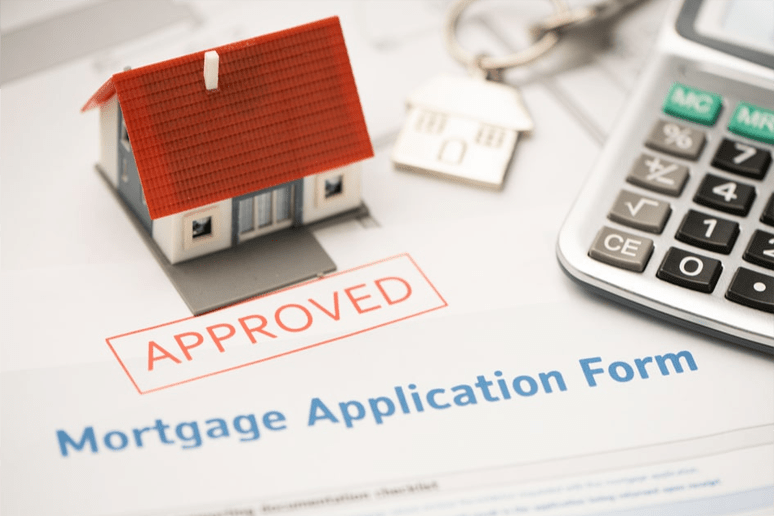Assisted house sales: What are they and how do assisted sales work?
Introduction
Hello! I'm Dan Green, and today I’m going to be discussing assisted sales and answering the big questions; ‘what are assisted sales?’ and 'do assisted sales work?'
I'll go through everything you need to know about the different types of assisted house sales, and by the end, you’ll be well-informed about whether this is a suitable strategy for you and your property's sale.
Before we get into it, I’d recommend you get a cuppa and make yourself comfy.
How to sell? Estate agent? Auction? Or something else?
Right, as a homeowner with a place to sell, it’s likely that you're already aware of using an estate agency, or selling at an auction.
You will probably also know that an auction is often quicker and more predictable than using online or high street agents, as auction events take place on set dates, and - when selling via the traditional method of auction at least - the top bid is binding when the gavel falls.
On the other hand, a standard estate agency housesale can take an average of four months. This approach relies heavily on finding the right buyers, receiving the right offers and avoiding the worst pitfalls of a property chain.
While the use of an estate agency remains the most common method of selling domestic property in the UK, a range of newer approaches is now coming to the fore that may better suit homeowners in certain specific circumstances.
One strategy is known as assisted sales. This is actually an umbrella term referring to various methods, which we will explore throughout this guide.
So, what are they and why might some homeowners opt for this kind of approach for their property's sale? Below, we’ll provide a clearer definition and explore the various options associated with the wider method.
Get Your Free Offer Now
A free and no-obligation cash offer for your house
Assisted house sales: Meaning

Broadly speaking, the term 'assisted sales' refers to a technique whereby a homeowner can sell directly to a specialist company or an investor at a pre-agreed price.
With an assisted home sale, the vendor can often receive up to - or even beyond - market price for their property, and will not usually have to wait for the completion of a chain or for buyers to express interest.
The precise method used is likely to depend on the requirements and preferences of the homeowner.
The main options are:
- Assisted sale with cash advance
- Assisted sale without cash advance
- Lease option
- Builder assisted sale
We’ll explore each of these terms in further detail later on in this guide. First, however, we’ll look into the reasons why a homeowner might choose them.
Get Your Free Offer Now
A free and no-obligation cash offer for your house
Why choose an assisted sale strategy?

In order to understand why this approach may appeal to certain housesellers, it may be best to start by exploring its general benefits.
These are:
- The opportunity to sell your house faster than would be possible via other methods
- A chance to agree on a set figure in order to avoid last minute lowball offers
- Access to funds on the sale proceeds (in certain cases)
- The transfer of responsibility and expenses relating to the property from the vendor to the purchaser
- A means of receiving up to - or even above - the value of a property while still achieving a fast sale
- A chance to reclaim Stamp Duty Land Tax - also known as SDLT - (in certain cases) when in possession of more than one property
- The opportunity to see value added to a property without having to manage upgrades oneself (in certain cases)
So, what kind of vendor might prefer an assisted home sale agreement over any other approach for their property's sale? This may appeal to you if you:

- Have an active mortgage - particularly if you have missed a number of repayments
- Don’t want to handle the deal yourself
- Own a home that is facing repossession, so don't have time for a traditional sale when you're on the market for months
- Are selling a property that is in poor condition, or has issues such as subsidence, damp or other damage
- Have inherited properties, or received a probate property requiring maintenance or modernisation that is valued beyond your budget
- Would like to increase the value quickly before you sell, without sinking too much money into refurbishment costs
- Are disposing of an unusual property type that is difficult to sell; whether it has been fabricated using unorthodox construction methods or it is a mixed-use building such as a shop with a flat above it
- Need to sell fast; either for an urgent injection of money from the sale proceeds of the property's sale, or because there is pressure on you to relocate
- Require a sale that provides you with funds in advance
- Have struggled to sell via another method and your past listings have gone stale after being on the market for an extended period
- Are interested in entering into a Joint Venture (JV) with an investor
- Need to sell your property shortly after buying it, but have come up against the six month resale rule (whereby a property cannot be remortgaged within six months of buying it)
- Simply wish to sell quickly for convenience and peace of mind
- Are a retiring landlord wanting to exit the property market
As you can see, there are a number of circumstances in which an assisted sale may be a highly beneficial option.
Throughout the next part of this guide, we’ll discuss the different types of assisted sale strategies in greater detail. In each section, we’ll explain the specific advantages of the method in question - from the perspectives of both the houseseller and the purchaser, or investor.
We’ll also investigate the potential pitfalls and drawbacks of every approach. In this manner, you’ll be able to use the information provided in this article to decide which method is best for you and your property, or whether a different approach may be preferable.
Get Your Free Offer Now
A free and no-obligation cash offer for your house
Types of assisted sale

As we have already mentioned, the term ‘assisted sale’ is quite a general one that covers many bases. To this end, some options that fall under this umbrella may be suitable for certain individuals, while others may not.
For example, if a seller owns property with outstanding mortgage payments, an assisted sale with a cash advance will almost invariably be more beneficial than one without.
For this reason, we highly recommend reading the following sections...
Assisted sale with cash advance
If you opt for this, your first step will be to find an investor, developer or other specialist who offers this kind of service.
You will then draw up an agreement with them, setting up the buyer to purchase the property at the end of an agreed term.
This means that - on a specified later date upon which both parties must agree - contracts can be exchanged and ownership will be transferred from the vendor to the purchaser (the investor or developer).
An assisted sale with a cash advance usually works in the following way...

- The owner approaches an investor, developer or other specialist (the buyer) that has experience in flipping properties
- This party then draws up an agreement with the seller, whereby they reserve the option to take ownership after a certain period of time, paying the seller a pre-agreed amount upon exchange of contracts
- This price may be up to or equal to the property’s current value - or it may be more, if the purchaser believes that they can add sufficient value to the property, allowing them to pay the homeowner the amount stipulated in the paperwork and make a profit for themselves
- The purchaser pays the vendor an advance consisting of a certain percentage of the seller’s equity stake in the property
- The new owner makes all required improvements throughout the stipulated period, then sells the property and pays the vendor the remainder of the sum upon which they had previously agreed
Benefits of an assisted sale with a cash advance
So why opt for this? Here are some of the top benefits...
The Potential Profit
It is worth noting that some agreements enable profits from the sale price to be split between the purchaser and the seller of the property.
Naturally, the scale of any possible profit depends heavily upon the nature, size, style, location and condition of the property.
Speed
This kind of deal is relatively swift, with contracts usually stipulating a sale period of less than 12 months from start to finish.
Advance Equity Payout
Using this option means that you will be paid a portion of your equity stake in the property in advance of completion. This means that the seller can get money for their property fast.
Relinquished responsibility
As the seller of a property at the centre of an assisted sale, you will be able to pass all related property management duties - and charges - over to the buyer as a part of this agreement.
This includes:
- Mortgage payments
- Council tax
- Insurance premiums
- Repair and maintenance costs
- Renovation expenses
Of course, this protects you from accumulating expenses throughout the period stipulated by the paperwork.
It is worth noting, however, that any mortgage payments made by the purchaser will be deducted from the property’s final sale price, reducing the eventual sum received by the vendor.
 Who might prefer an assisted home sale with a cash advance?
Who might prefer an assisted home sale with a cash advance?
This is a superb option for homeowners who need funds quickly.
It’s also great for those who are trying to part with a property that has structural problems or any other issue that would otherwise make it difficult to sell quickly for a good price.
Furthermore, this approach works well for homeowners who want to add value but do not have the time, funds or capacity to tackle changes themselves.
 Who should avoid this option?
Who should avoid this option?
Assisted sales with cash advances may be a less appealing choice for those who do not wish to cover a 3% SDLT levy. This will be charged if the vendor moves into a new place before the buyer is able to dispose of the property.
Moving at this point will mean that they are the owner of two properties simultaneously.
SDLT can be reclaimed after the home is sold. However, this may cause cashflow issues for some individuals.
It is also worth noting that an agreement of this kind is reliant on the actions of solicitors and mortgage lenders.
Assisted home sales are still a fairly niche option, which means that some legal specialists may lack sufficient knowledge or understanding of the subject. This may lead to lengthy hold-ups or errors when drafting the paperwork.
Any houseseller will also need to apply to their mortgage lender for permission to enter into a negotiation of this kind. This means that lenders who are cautious about using less common or traditional methods for selling may refuse their consent - and the assisted home sale will not be able to go ahead.
.
Get Your Free Offer Now
A free and no-obligation cash offer for your house
Assisted home sale without cash advance
This is very similar to the option described above. However, as its name suggests, the vendor will not receive an advance equity payout.
The buyer will only need to pay an option fee - which may be as little as £1. Some amount must change hands in order to make the agreement legally binding.
This step is perhaps more symbolic than practical; it shows that the purchaser has bought the option to take on the property themselves.
Most commonly, once the paperwork is drafted and signed, the buyer will require full access to the property almost immediately - usually in an empty state - so they can begin renovations or similar work.
Benefits of an assisted home sale without a cash advance
Sales of this kind offer very similar benefits to the cash advance service - particularly speed and the potential for profit, as described above.
However, there are further benefits, including:
Deferred Stamp Duty charges
When you use this method, SDLT will not need to be paid until the new owner sells the property on. It’s important to note that this tax will be reclaimable within two years of that housesale.
 Who might prefer an assisted home sale with a cash advance?
Who might prefer an assisted home sale with a cash advance?
People who opt for are usually individuals who have already moved out, or whose home is currently empty for any other reason.
For example, they may have received an additional home via probate and wish to get rid of it as soon as possible - perhaps because they cannot maintain or renovate it.
Investors often prefer empty places because of the quick turnover typically required.
Any home sold via an assisted sale without a cash advance is likely to sell for a good profit, as the investor will usually set about making upgrades straight away. For this reason, an agreement of this kind is perhaps best suited to property that requires a small amount of renovation or updating.
However, assisted home sales without cash advance are suitable for homes in almost any condition.
This option will also work well if the vendor does not have a mortgage on the property.
 Who should avoid this option?
Who should avoid this option?
The main downside to an assisted home sale without a cash advance is the potential for cashflow issues. As the seller won’t receive any money upfront besides the option fee, they will need to wait until the property is sold in order to receive a payout.
The same goes for the SDLT charge. While this cost is deferred until the point of sale, there will still be a two year wait until it can be reclaimed.
Get Your Free Offer Now
A free and no-obligation cash offer for your house
Lease option

A lease option sale - also known as a Purchase Lease Option or PLO - is occasionally grouped in with other assisted sale options, but is sometimes considered to be a separate approach entirely.
For the purposes of this guide, however, and due to the many similarities between the different methods, we have chosen to include this option.
A PLO is very similar to an assisted sale with a cash advance, but the process tends to take longer than 12 months to complete. The final sale date that is pre-agreed as part of the contract is often between three and five years in the future, though, by law, this can reach up to 18 years.
As is the case in the method detailed above, this will be enforceable by law as long as money changes hands; even if it is as little as £1. In completing an arrangement of this kind, the buyer will be purchasing the option to buy the property.
It is worth noting that the word ‘option’ means exactly that. A contract of this kind means that the purchaser is not legally obligated to go through with the transaction, but that they have the exclusive right to do so at the end of the specified period.
When entering into an agreement of this kind, the seller and the buyer will confirm a strike price (or exercise price), which is a fixed amount for which the seller may buy the property before the option period draws to a close.
As in an assisted home sale, once this agreement is in place, the purchaser (or the option holder) takes control of the property according to the terms of the contract, including payments for the mortgage, bills and any maintenance costs.
A PLO often sees the vendor receiving monthly rental payments from the purchaser instead of being paid a portion of the home’s equity in advance. These payments will be made throughout the period stipulated in the paperwork.
Often, the buyer may rent out the property to an undertenant in order to make a profit during the option period.
As we have mentioned, when it comes to the eventual sale, the buyer reserves the right to change their mind.
For this reason, the possibility remains that they will not take on full ownership at the end of the pre-agreed term. If this is the case, the option will expire, permitting anyone to make an offer on the property from that point onwards.
Of course, it is still possible for the vendor and purchaser to draw up a new contract with revised terms and start afresh after the previous one has expired.
Benefits of a PLO
As we have mentioned, a process of this kind usually sees the purchaser taking on responsibility for all expenses relating to the property. They often pay a regular rental fee on top of this, which is financially beneficial to the seller.
It is also up to the buyer to undertake any planned renovations, which means that the one selling can part with their property and make money in return without having to make any improvements themselves.
Furthermore, in many cases, investors who buy property via a PLO go on to let that same property out to its original owners; generating an ongoing income.
Who might prefer a PLO?
This method may prove beneficial to certain individuals; particularly those in mortgage arrears or who cannot manage the property’s upkeep, as these responsibilities will then fall upon the shoulders of the new owner.
Some contracts allow for any profit made from the eventual sale to be shared with the original seller, which makes them especially attractive.
Who should avoid this option?
PLOs can be complex. You may decide to avoid this type of sale if any of the following issues are of particular concern to you...
Any seller agreeing to a PLO must face the risks in pre-agreeing a fixed price at a point in the future.
As house prices may rise or fall throughout the period covered by the contract, the vendor may find themselves parting with their property for a lower amount than they could have achieved by going on the open market.
However, conversely, property prices in the area - or indeed, nationally or globally - may have taken something of a hit during this time. In a situation of this kind, a pre-agreed fixed price may prove beneficial to the seller.
Another risk is that, as previously mentioned, the buyer will only be buying the option to be the owner of the property. As a result, this is not an assured agreement.
If the purchaser decides that it is not in their best interest to take full ownership of the property - for example, if house prices fall too far for them to make a profit - they can simply walk away from the arrangement.
For this reason, it is important for vendors to pay close attention to any break clauses that are included in the PLO.
Under some contractual terms, it is also possible for the buyer to sell the option to a third-party before the end of the period specified in the paperwork.
While the original contract will remain in place if this happens, it means that the property will not be taken on by the seller’s originally chosen purchaser - which may lead to complications.
What’s more, throughout the option period, the seller’s name remains on the mortgage deed. While the purchaser often agrees to take on the associated repayments as part of the arrangement, the seller will be legally liable for any outstanding amounts. if they should fall behind.
Finally, as the vendor will usually reside in a separate property once the purchaser has taken responsibility for the house at the centre of a PLO, there will usually be an additional 3% Stamp Duty charge to pay.
Get Your Free Offer Now
A free and no-obligation cash offer for your house
Builder assisted sale

A ‘builder assisted sale’ is where the owner of a property enters into an agreement with a building firm or developer.
The builder agrees to sell the property quickly on behalf of the seller. In return, you agree to buy a new build that has been developed by the builder.
This is a swift and easy way for a building firm to vend a home on one of their new developments, and it’s possible for them to make a good profit by renovating the property they acquire before it hits the market.
Usually, the builder teams up with an estate agent in order to sell the property swiftly, and for a good price. To help this along, the builder often arranges all property valuations themselves, and may also pay for the estate agent’s fees
Benefits of a builder assisted sale
A transaction of this kind is often fairly smooth and self-contained. There’s no need to worry about where you’ll be moving once you’ve handed over the keys to your property because you’ll already have a new place lined up.
You’ll often be given a choice of different properties available from the builder. The one you select will usually be reserved for you for around four weeks once the assisted sale process has started.
Drawbacks of a builder assisted sale
As mentioned above, the terms are usually fairly inflexible; if you want their help in selling your property, you will be required to purchase a property they have developed.
For this reason, you will usually have very few options when it comes to your next home.
In addition, deals of this kind rarely permit any deferring of SDLT. This amount is often deducted from the builders’ offer price.
It is also worth noting that you’re likely to get a lower offer from a builder or developer than from some other kinds of investors.
This is partly because they will want to make a significant profit from their eventual sale of the property, but also because they need to ensure that they can cover any unexpected expenses that may arise as they improve and renovate your old place.
Get Your Free Offer Now
A free and no-obligation cash offer for your house
Other ways to sell your house fast

If you don't feel that any of the above options will work for you, you won’t necessarily have to fall back on the standard estate agent method. Here are some alternatives.
Auction
You might decide to put your property up for auction, which can be done either online or in-person via an auction.
When you opt for this method, you will arrange to list your house with an auctioneer of your choice. You will then need to instruct a solicitor to create a 'legal pack' detailing all relevant information relating to the property.
Usually, you will be required to allow viewings of your home in advance of the auction date.
A date will be set for bidding to commence. At a live auction, the property or ‘lot’ will be available for bidding between certain times on a single day. Online, house hunters may be able to bid on the lot for up to 30 days.
If you opt to use traditional or ‘unconditional’ auction - either live or online - the winning offer will be considered legally binding upon the close of bidding. Contracts will then be exchanged and an initial deposit will need to be paid. This is usually 10% of the price offered by the winning bidder.
The buyer then has 28 days to pay the remainder, plus any additional fees.
Via the ‘new method of auction’ - otherwise known as a ‘conditional’ auction sale that usually happens online - bids are made with the intention of purchasing the option to buy.
The winning bidder then pays a deposit to reserve the property on the day bidding closes. They will then have 28 days to get all finances and legal matters in order, at the end of which contacts will be exchanged.
Following this, they are granted an additional 28 days to complete. Unlike the traditional method, the purchaser is legally permitted to drop out of a transaction of this kind, making it less secure for you as a vendor. However, the reservation fee or deposit is non-refundable.
Fast Home Sales
Homeowners who wish to sell their property fast may also consider the use of a fast house sale company, also known as a ‘we buy any house’ company.
Organisations of this kind will sometimes undertake a quick desktop valuation of the property in order to make an immediate estimated offer. If the seller wishes to proceed, the company will then arrange an independent valuation, then present the vendor with a revised figure.
Once the vendor has agreed to this firm offer, the two parties enter into an agreement whereby the home buying company purchases the property directly from the homeowner for cash, which means there is no mortgage or chain involved.
The simplicity of this arrangement means that transactions of this kind can be very swift - and often complete in 30 days or fewer making this an excellent option for those prioritising speed.
Sale price
The funds for this either come directly from the organisation’s account, or from a network of investors. In order to make a profit, the home buying company will offer an amount below the property’s market value. Typically, this falls between 75% and 85%.
Legal, administrative and estate agency fees are usually paid for by the company buying the property, providing a hassle-free process for housesellers. Please have a look at my other articles such as this one, for more information about ‘we buy any house’ companies: https://springbokproperties.co.uk/we-buy-any-house.
Get Your Free Offer Now
A free and no-obligation cash offer for your house
How can I arrange an assisted sale?

If you think an assisted sale strategy would benefit you, your first port of call should be to decide on the specific option that suits you best, then to search for companies and investors that offer this as a service.
Take a look at their reviews on sites like allAgents.co.uk to find out how other users have found their services. Are they easy to deal with? Do they offer transparent advice and information upfront? Do they communicate well throughout the duration of the process?
Next, you should explore how they work. Will they buy your property from you directly, or do they need to wait for additional investors to get on board? How long does the process take, on average? What fees are involved? Are there any hidden costs? Might there be any risks for you?
If you cannot find all of the information you need online, it may be best to contact each specialist directly via email or telephone.
By following this systematic approach, you will be able to create a shortlist of the best and most relevant service providers, then directly compare them and their strategies to help you choose the specialist that will best respond to your needs.
Conclusion
If you wish to dispose of a home that is in a poor state of repair, has been on the market for an extended period - or is one that you cannot continue to run or maintain yourself - an assisted home sale strategy may be the ideal option for you.
Of course it is vital that you acquaint yourself with the details of each kind, as explained above, in order to decide on the best option. Each has its own benefits and pitfalls, and some may be more suitable for your specific circumstances than others.
In order to learn more and to find out how to achieve a swift and straightforward housesale, all you need to do is to get in touch with us today. We can arrange a free property valuation and provide you with a cash offer. Call us on 0800 068 4015 for your free, no-obligation offer.
I hope you now feel more confident about assisted sales and have learnt new things from this article. I wish you a happy, fast and stress-free sale. Good luck!
FAQs
I’ve put together five FAQs and answers to address common concerns and provide practical advice on assisted sales:
-
What is an assisted home sale?
This is a strategy where a homeowner sells directly to a specialist company or investor at a pre-agreed price. It can include options like upfront funds, lease options, and builder-assisted sales, often allowing vendors to receive up to or beyond market value.
- Why might a homeowner choose an assisted sale?
Homeowners might choose this to sell their property faster, avoid last-minute low offers, transfer responsibility and expenses to the purchaser, and potentially receive a cash advance. It's beneficial for those facing repossession, or for owners of properties in poor condition, or owners needing funds quickly.
- What are the benefits of an assisted sale with a cash advance?
Benefits can include receiving a portion of equity upfront, speed, profit potential from added improvements, and transferring property-related expenses to the buyer. It can work for those urgently needing funds, or homeowners unable to manage property renovations.
- Who might benefit from an assisted sale without a cash advance?
This option suits sellers whose homes are already empty, such as inherited properties, and those without outstanding mortgage payments. It allows for deferred Stamp Duty charges and potentially high profits from investor improvements.
- What are the risks associated with lease options?
Risks include pre-agreeing a price that might not reflect future values, the purchaser having the option but not the obligation to complete the purchase, potential complications if they sell the option to a third-party, and the seller remaining liable for payments to the mortgage lender if the buyer defaults.
- Can an assisted sale work for inherited properties?
Yes, they can work very well for inherited places — and in many cases, it’s a smart, hassle-free option. When you inherit a home, especially one that’s outdated or needs some work, putting it on the open market can be time-consuming and stressful, as well as emotional. An assisted sale means someone else takes care of the renovations and marketing on your behalf. It also helps when multiple family members are involved by offering a neutral, structured way to handle the asset without arguments or complications.
Further reading
I’ve put together a table that lists websites providing resources about the UK property market, and I think you’ll find these to be helpful:
| Website |
Description |
allAgents
www.allagents.co.uk |
Well-respected review site for estate agents and cash buyers with easy to understand metrics. |
Zoopla
www.zoopla.co.uk |
A popular UK property portal offering market insights, property listings, and buying / selling guides. |
Rightmove
www.rightmove.co.uk |
The UK's largest online property portal, providing detailed market data and advice. |
OnTheMarket
www.onthemarket.com |
A property search portal providing buyers and sellers with important property information. |
Property Industry Eye
www.propertyindustryeye.com |
This is an independent publication offering news and analysis on the UK property market. |
Home Owners Alliance
www.hoa.org.uk |
Provides practical advice on buying and selling homes, as well as market trends and news. |












 Who might prefer an assisted home sale with a cash advance?
Who might prefer an assisted home sale with a cash advance? Who should avoid this option?
Who should avoid this option?

